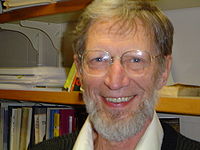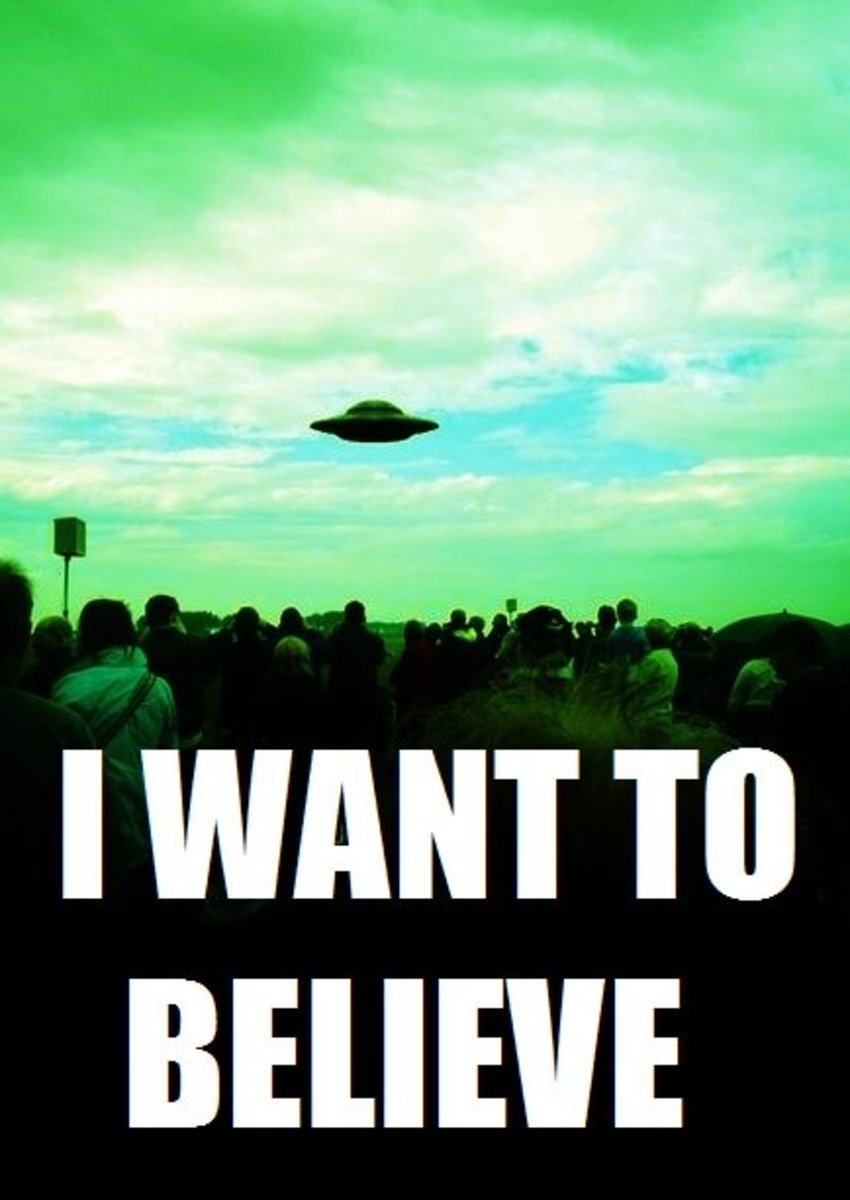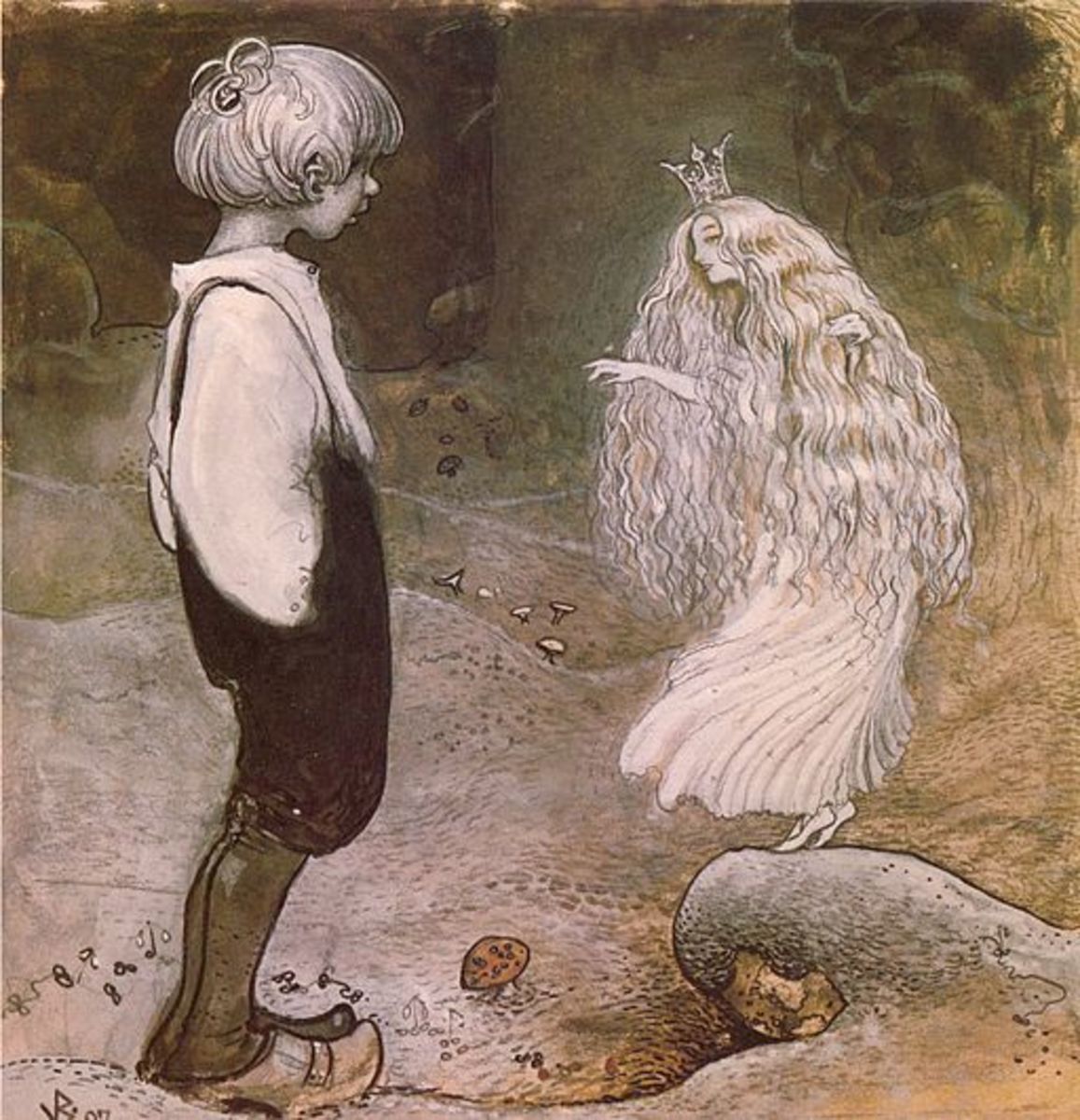Theism, Justified Belief and a Stroll Down an Empty Street
________________________________________________________________
This is an account of some philosophical approaches to belief and how they relate to theism. In the tradition of philosophical discourse I have used dialogue to present the arguments. The aim is to be as straightforward as possible.
I've written this hub because I enjoy philosophy, I enjoy writing and I'm interested in theism as a type of belief, so it's nice to combine all three.There is a bit of creative license used in setting the scene and the dialogues themselves, hopefully this is useful in conveying the essential ideas.
________________________________________________________________
You stroll down an empty a street, early in the morning. When I ask you later in the day what you did this morning, you tell me matter-of-factly that you strolled down a street. As I'm interested in such things I ask what makes you believe you strolled down a street. Ignoring the strangeness of the question, you tell me you remember doing it. Is this belief justified?

The Evidentialist
An evidentialist believes it is only sensible to believe things that have supporting evidence. Bill, an evidentialist, enters the room. He asks what evidence there is to support your belief that you strolled down the street this morning and is shocked when you tell him there is none.
‘No witnesses? No footage from CCTV cameras? No forensic evidence that places you there?’.
‘No, no and no’, you reply.
‘What makes you believe it then?’ asks Bill.
You tell him you remember doing it, you remember experiencing it.
Bill is not happy. He explains that remembering an experience is not evidence. Only things other people can check count as evidence. No one except you knows your memory. No one can check if you really experienced strolling down that street. You could be lying, or insane, or your memory could be faulty.
Ignoring the suggestion you might be insane, you tell Bill your memory of strolling down the street is all you have. Bill says,
‘It is wrong always, everywhere, and for anyone to believe anything upon insufficient evidence’.
For Bill there is ‘insufficient evidence’, so your belief is not justified.

The Rationalist
A rationalist believes it’s only sensible to believe things that can be worked out in the mind alone. Things that don’t depend on our senses. René is a rationalist. You tell him why you believe you strolled down the street this morning. He says your senses are unreliable, they can be mistaken.
‘What exactly do you remember?’, he asks.
‘I remember seeing buildings, feeling the wind, hearing different sounds’.
‘how do you know they were real?’
‘They looked, felt and sounded real’
‘How do you know you weren’t dreaming?’
After for a minute, you say, ‘it was too realistic’.
‘How do you know it was not just a very realistic dream?’
René explains that whatever you answer can be doubted, and this is the problem of relying on beliefs based on the senses. Experience is unreliable so these beliefs need to be justified with proof, but that proof itself is experienced through the senses so must then be justified with further proof, and so on. He calls it the infinite regress of justification.
René says only things worked out with the mind alone are reliable. He says that by telling someone what ‘bachelor’ and ‘unmarried’ means, they know the phrase "all bachelors are unmarried" is true. It must be true, by definition. They do not need to interview every bachelor to provide evidence. They can work it our purely with their mind. Mathematics is an example of this type of thinking. We can work out that 1+1=2 is true just by thinking about it.
He calls such beliefs self-justifying truths of the mind because they don't need to be proven by anything else and do not run into the infinite regress of justification problem. Just like the sentence, ‘I think, therefore I am’.
The truth of this sentence, he says, can be worked out with the mind alone. It does not need to be proven by anything else. You only need to know the meaning of each word to know the phrase is true.
Your belief on the other hand relies on your senses and proof that comes through the senses, so it is unreliable and cannot be justified. Exit René.
What’s going on?
Why is a belief as simple as the belief you strolled down the street not justified according to these two ways of thinking? The problem is that neither takes into account the important role assumption plays in the formation of beliefs.
Both of the above ways of thinking are useful in their own right. One is the foundation of science, the other mathematics. No one can deny or dispute the usefulness of science and mathematics. But something isn’t right. Neither of these approaches to knowledge and belief work when it comes to certain ordinary beliefs.
You would indeed believe you strolled down the street this morning even if there was no evidence, and even if your belief depended entirely on your senses, the memory of your experience. Moreover, no one would question your belief or suggest it was unacceptable. Your belief would be considered consistent with a reasonable view of the world.

The Foundationalist
Foundationalism is the philosophical view that some beliefs are the foundation of others. These beliefs are essentially assumptions and sit outside of rationalism and evidentialism. They are called basic beliefs.
Al is a foundationalist. You tell Al about the belief you strolled down the street this morning. You tell him you don’t have any evidence to prove it, and your belief relies on the memory of your senses, your experience of it. Al sits back.
‘What’s the problem?’, he asks.
‘Well, there is no evidence to support my belief’.
‘You don’t need evidence’ Al says.
‘How so?’ you ask.
Al explains that the belief you strolled down the street has not been formed on evidence, but is grounded in your experience of doing it. You don’t need to be convinced that you walked down the street. You ‘know’ you did because you experienced it, or at least think you did.
‘What does that mean?’ you ask.
‘It means that practically you assume, like the rest of us, that your senses are reliable. So if you think you experienced strolling down the street, then you will believe you did, unless someone gives you concrete evidence that your experience was false.This is typical of how human beings operate'. He pauses.‘Has anyone given you concrete evidence that your experience is false?’
‘Not at all’.
‘Then it’s reasonable for you to believe what you experienced’.
In this way Al explains that your belief is a basic belief. You are essentially assuming that your senses are reliable and this assumption is the ‘foundation’ of your belief about walking down the street.
In truth you don’t actually know your senses are reliable. You could be in a realistic dream right now. You could be just a brain in a jar in the laboratory of a fiendishly clever scientist who is stimulating it to create experiences. You could be in a giant computer simulation like The Matrix. There is no way to tell. So you, like the rest of us, just assume your senses are reliable and get on with your life.
‘But why do we assume our senses are reliable?’ you ask.
‘Because it’s useful. If we don’t, things can get difficult’
‘How?’
‘Imagine you live on the plains of Africa. Through the long grass you see a lion running straight at you. You’ve got 2 options. Trust your senses or doubt your senses. If you trust your senses, you’re likely to run for it. If you doubt your senses, you might not.
Transfer that to modern day New York. Through the mass of traffic you see a taxi coming straight at you. You have got the same two options. Trust your senses and act or doubt and maybe not act.’
Al explains that if you trust your senses and are wrong then the consequence is that you simply react without needing to. But if you doubt your senses and are wrong, then the consequence is that you become lion food or a NYC accident statistic. So although intellectually we can doubt the reliability of our senses, practically we don’t without good reason. We assume our senses are reliable because its more helpful than assuming they are not. You think for a minute then say,
‘But wouldn't people think I was crazy to jump out the way of a car that isn’t real?’
‘Depends’
‘On what?’
‘Whether you genuinely believed you were experiencing a car coming at you. If you genuinely believe a car is coming at you, then you would be crazy not to jump out of the way.
Yes that may appear crazy to others, but actually you're doing exactly what anyone would do if they believed a car was coming at them. If the car is not real, you're still not crazy for reacting as if it was, because you experienced it and in the absence of anything to the contrary, you assumed your experience to be reliable. So you may be mistaken but your're not crazy.’‘So does that mean any belief is justified because I genuinely believe I am experiencing something? What if I really am crazy, or ill or something and I see fairies in the garden? Doesn't this make any old belief justified?’
Al explains that the reliability of the senses assumes a person’s faculties are functioning normally. By faculties he means the parts of the brain that deal with sensory input and processing. Someone who is mentally or physically ill in a way that affects those faculties cannot assume their senses are reliable and neither can we.
So if someone has a tumour on their brain that creates pressure in some area causing hallucinations, their belief that a pink elephant riding a motorcycle is coming at them is not a basic belief. The assumption that their senses are reliable cannot be made, so their belief has no foundation and is not justified. Genuinely believing we have experienced something is not quite enough, our faculties also have to be functioning properly.
For Al the belief that you strolled down the street this morning is grounded in experience that appeared genuine to you, and your faculties are working as they should, therefore your belief is justified and reasonable.
He is quick to point out that it doesn't mean your belief is true. You may well have been dreaming or something else, but it does mean Bill and Rene are incorrect to suggest that your belief is not justified. Al also points at many other everyday beliefs that are grounded in experience not based on evidence and suggests that if your belief is not justified, then none of these basic beliefs are justified.

The theist
Theism is belief in the existence of a deity. Clive is a theist, a Christian. You ask Clive what evidence he has for his belief.
'None’, he tells you. ‘What makes you believe it then?’ you ask.
He believes he experiences god’s love, forgiveness, hope etc. And when he feels particularly distant from god he tells you he experiences desolation, sadness etc.
You are not happy.
‘That isn’t evidence’ you say, ‘that’s all subjective. You could be lying, or insane, or just mistaken’.
Clive resents the suggestion that he is insane, but says that's all there is.
'So there’s no evidence whatsoever to support your belief, but you believe it anyway?’ you ask him.
Clive replies ,
‘You don’t believe you strolled down the street this morning because someone convinced you with evidence. You believe it because of what you experienced. You think you experienced strolling down the street, and there is nothing wrong with your faculties, so you assume your experience is reliable and you believe it. It's a basic belief.
Well I don’t believe in god because someone convinced me with evidence. I believe it because of what I have experienced. I think I have experienced god, and there is nothing wrong with my faculties, so I assume my experience is reliable and I believe it. It's a basic belief.
If my belief is not justified, your belief is also not justified. If your belief is justified, then my belief is justified also.
We are either both justified in our beliefs, or both unjustified in our beliefs.So which is it?‘
You ponder the question . . .






